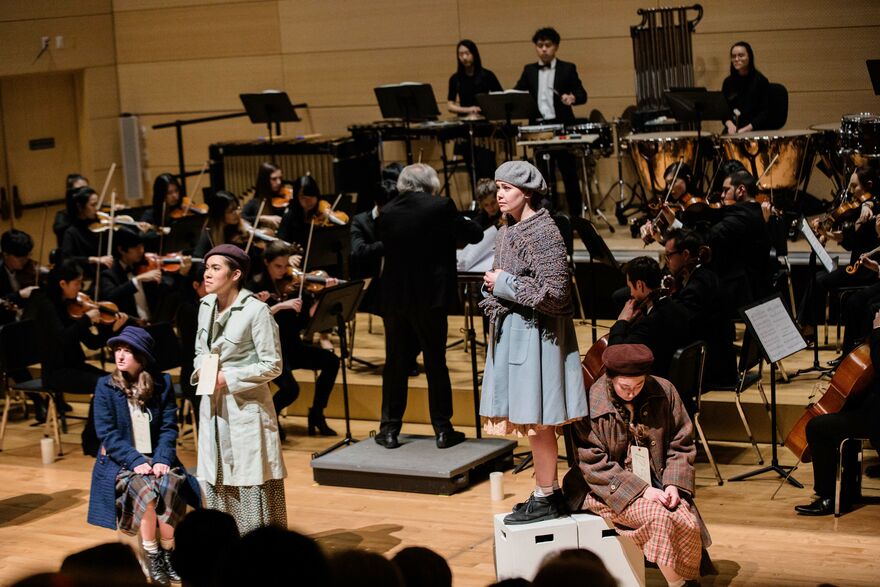
The New School Commemorates the 80th Anniversary of the Kindertransport Movement
Eighty years ago, in the months leading up to World War II, nearly 10,000 mainly Jewish children from Germany, Austria, Czechoslovakia, and Poland were transported safely to Great Britain through the Kindertransport operation. They were placed in foster homes, hostels, and farms and were often the only members of their families to survive the Holocaust.
To commemorate the 80th anniversary of the heroic rescue effort, The New School recently hosted a series of events that included performances, screenings, and panel discussions. In true New School fashion, the multi-day program was a collaboration between the College of Performing Arts (CoPA), The New School for Social Research (NSSR), the Zolberg Institute on Migration and Mobility, and the Kindertransport Association (KTA), a national not-for-profit organization that unites Kindertransport survivors and their descendants.
Miriam Steele, professor of psychology at NSSR, chose the two panel discussion topics: “Art in Conversation with History: Creative Responses to the Kindertransport” and “Dividing Lines: On the History of Child Separation, Psychological Impact, Memory, Identity, and Trauma.”
“It felt like it was a special opportunity to delve deep into a conversation that could only be had at The New School, namely, a discussion on the interface between performance art and music and psychology, alongside colleagues from the Zolberg Institute, on the plight of separated children in our current context,” said Steele. “In my own particular case, it turned into a bringing together of powerful threads from my own personal family history and the development of my professional and research interests.”
The program also included cultural events. CoPA presented the U.S. premiere of Carl Davis’ Last Train to Tomorrow, performed by the Mannes Orchestra, the Mannes Prep Senior Chorus, and acting students from the School of Drama. There was also a screening of the documentary My Knees Were Jumping: Remembering the Kindertransports, which featured a conversation with Melissa Hacker, the film’s director and president of the KTA.
“Forms of creative expression, like music, can help us to remember, process, and understand these historic events,” said Richard Kessler, executive dean of CoPA and dean of Mannes. “Carl Davis’ Last Train to Tomorrow does just that and also offers us a portal into the inner worlds of the children, parents, and heroes who were a part of the movement.”
The series of events was also tied to current political affairs and initiatives at The New School. Along with 11 other colleges and universities across the country, The New School established the new University in Exile Consortium to provide space and resources that will support endangered scholars from around the world.
“The combination of events brought in a wide array of participants, including those directly involved in the Kindertransports — the ‘Kinder’ themselves and many of their children and grandchildren,” said Steele. “I didn’t feel we could present the Kindertransport events without also discussing the current plight of migrants and separated children happening right now in our own country.”
The multi-faceted events also reflected the university’s interdisciplinary approach to education, and showcased the kind of innovative collaboration that regularly occurs at The New School.